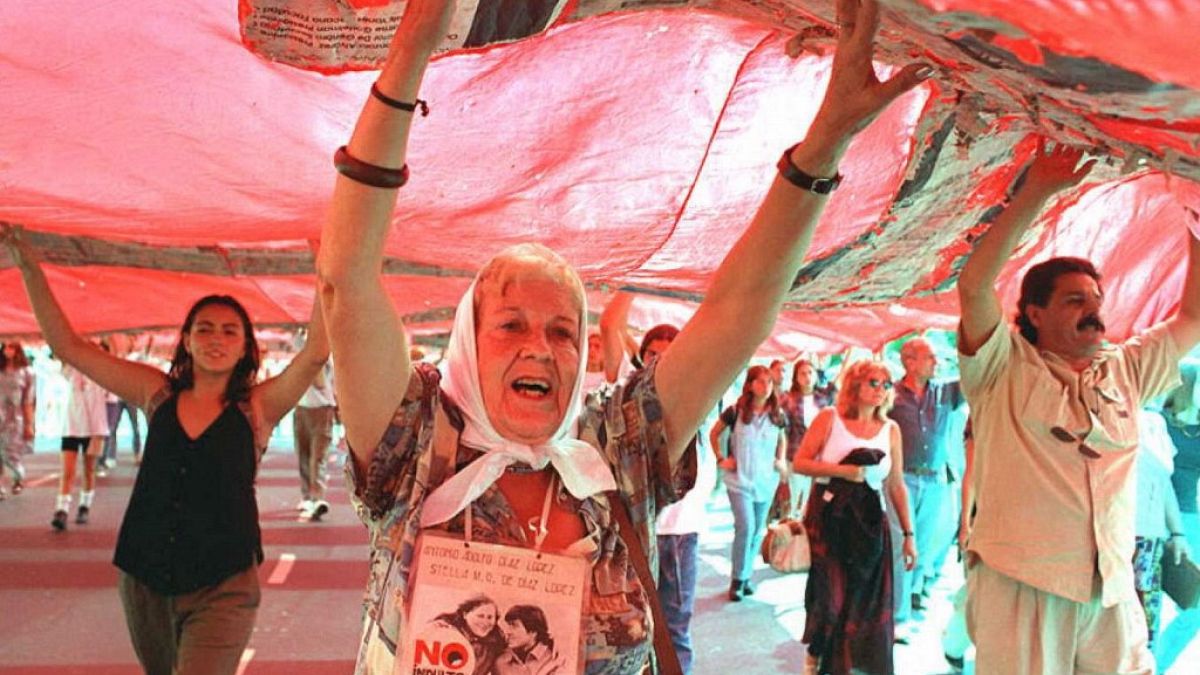The movement was started by the Abuelas de la Plaza de Mayo, whose pregnant daughters went missing or were killed by the dictatorship.
Argentina has started searching abroad for children that disappeared during the military dictatorship.
The international campaign called 'Help us to find you', is looking for 350 "disappeared" children born in the country between 1974 and 1983 and who know they are adopted or have doubts about their origins. Until now, only 130 have been recovered.
The overseas search has been extended beyond Argentina's borders in the hope that more families can eventually be reunited.
The movement was started by the international organisation Abuelas de la Plaza de Mayo or in English, the Grandmothers of la Plaza de Mayo - a famous historical landmark in Buenos Aires.
Some of their daughters were pregnant when they went missing or were killed by the dictatorship, giving birth during their disappearance or before dying. Others had children with them at the time.
The grandmothers wanted to know if their grandchildren were alive, so they started looking for them. In 1983, once democracy was restored in the country, the Argentinian state joined them in their search.
Pablo Grinspun, the Argentine Ambassador to the EU, whose embassy in Brussels is helping in the search, told Euronews that the methods employed by the dictatorship were brutal.
"There were systematic and massive violations of human rights from a repressive regime and one of the main methodologies was a systematic plan of forced kidnappings of people that included the appropriation of children and babies, either because they were children abducted with their parents or because they were pregnant women giving birth clandestinely," Grinspun said.
This was the case with Guillermo Amarilla who spoke to Euronews.
He was born in a detention centre in Argentina in 1980. His family didn’t know he existed because his mother was only one month pregnant when she was kidnapped.
But ten years ago after a DNA test, he was finally reunited with his family.
"We have the truth in our own hands when we find out who our parents were. We learn about a whole world and we meet people who welcome us with open arms, with a lot of love and affection, but we also know another story that has to do with the disappearance of our parents."
Those having doubts about their identity can ask for help in total confidentiality at any Argentinian Embassy or consulate around the world.
